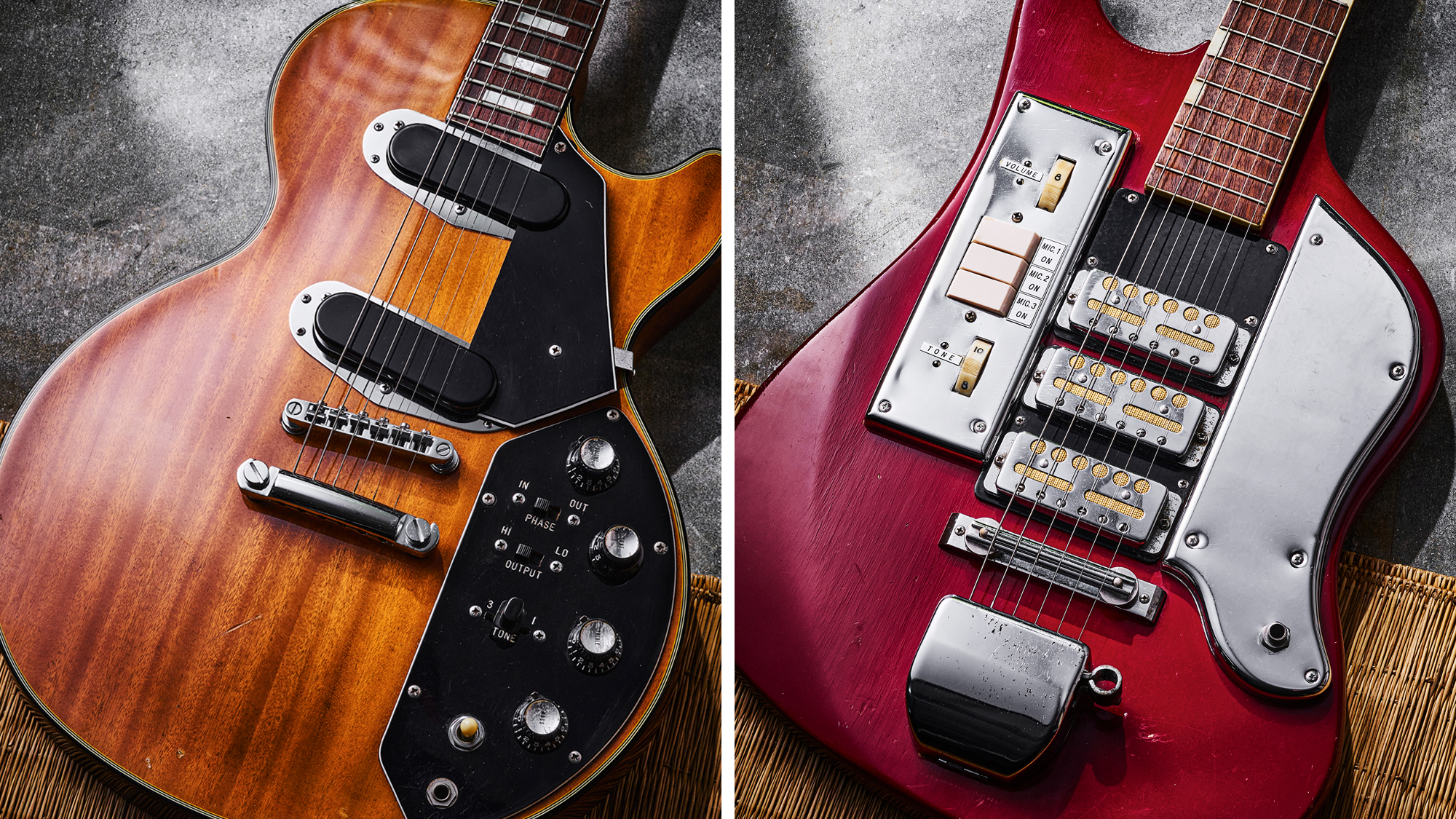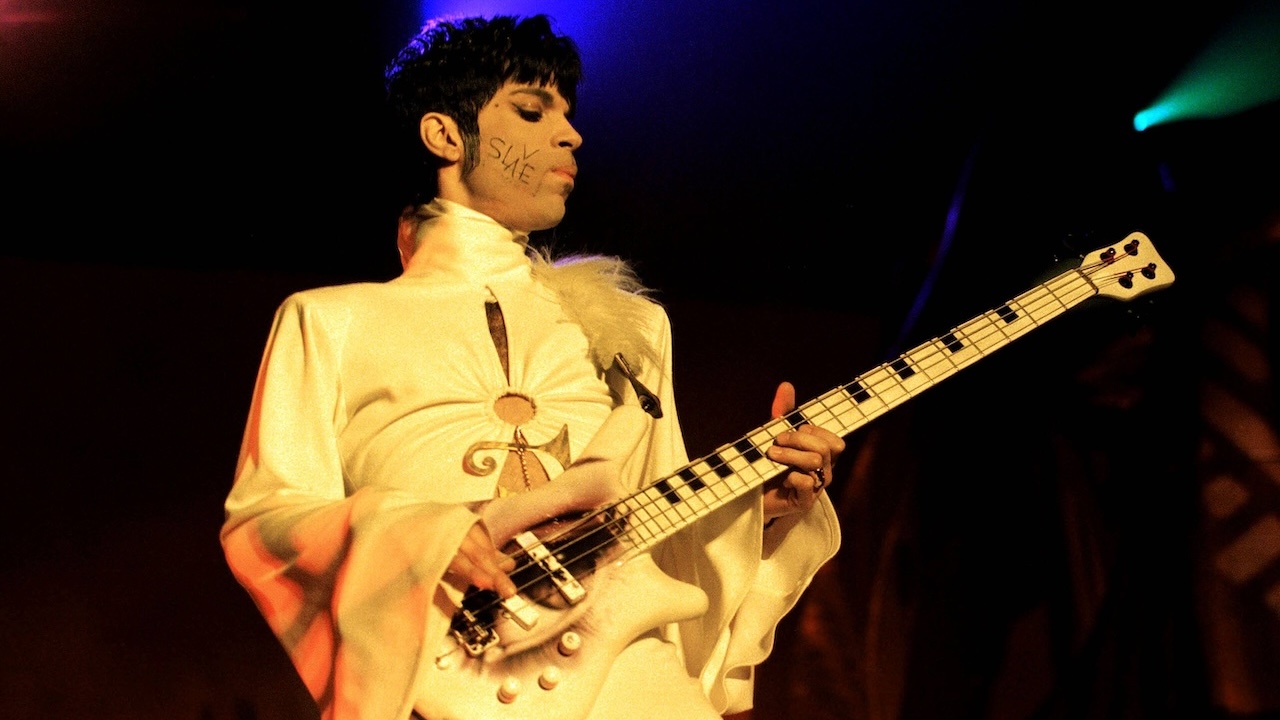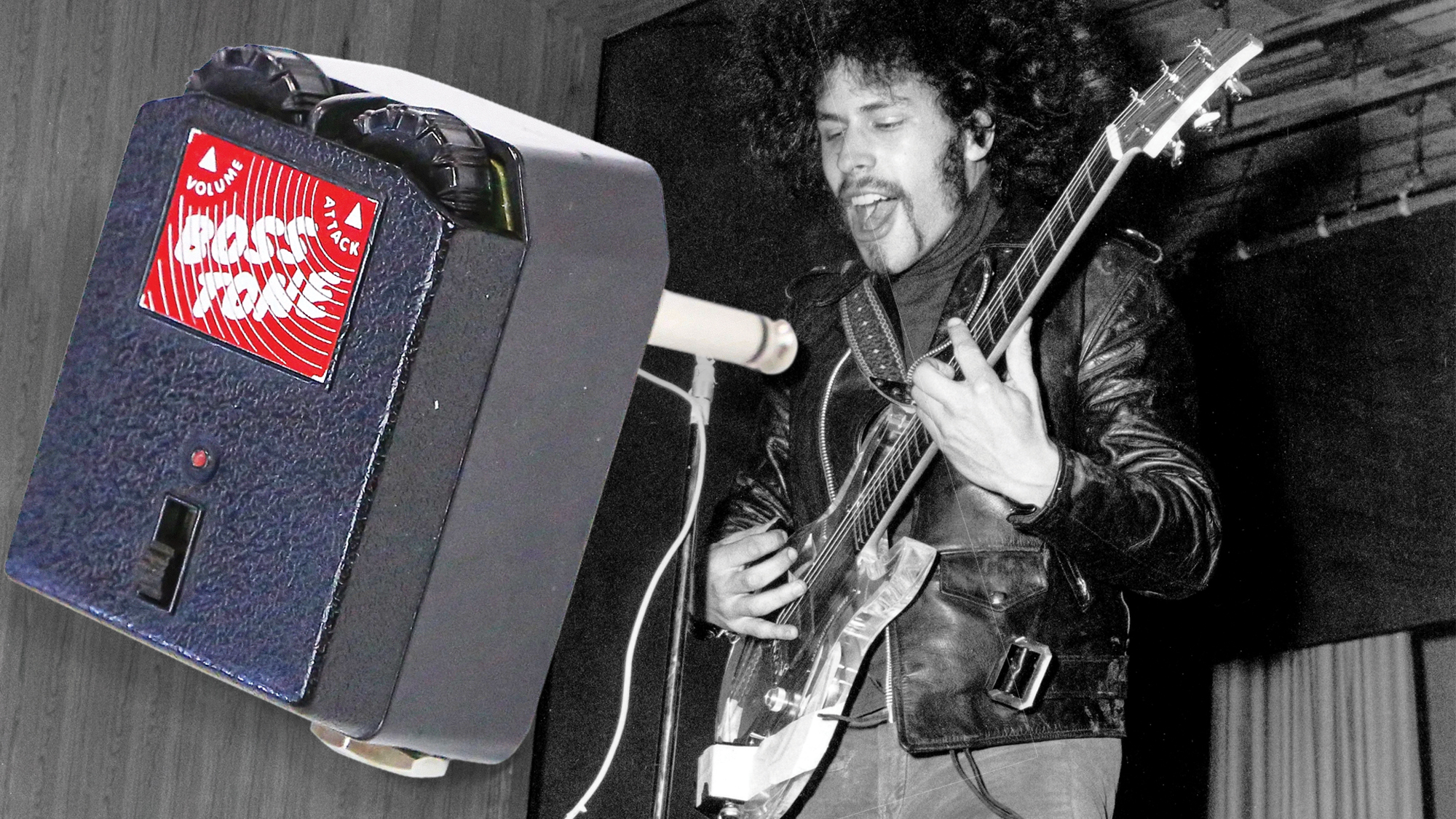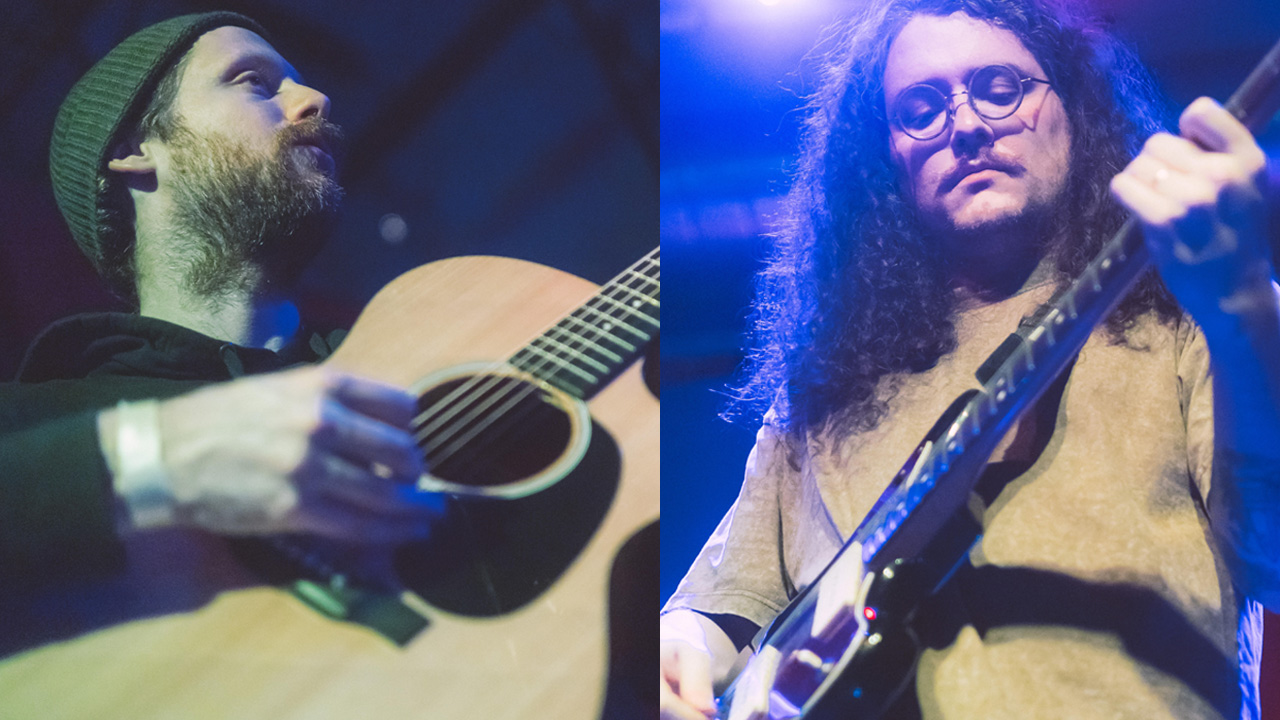Psychedelic Porn Crumpets: “That dread turned into a bit of angst, and then we put that to the heavier stuff”
After two years spent descending into insanity, Psychedelic Porn Crumpets have conjured up their darkest and weirdest – and most importantly, best – album yet

By the time Psychedelic Porn Crumpets dropped their fourth studio album, SHYGA! The Sunlight Mound, the world had well and truly turned to shit. It was February ‘21, and with new variants of COVID-19 emerging, more lockdowns looming, and a return to the good ol’ days of live music looking farther out of reach by the hour, dark and stormy, angst-driven rock was the new bubblegum pop. It came as no surprise, then, that SHYGA! hit the ARIA Top 5 – a huge leap up from the #31 debut of its predecessor, And Now For The Whatchamacallit.
The band themselves were expectedly stoked by LP4’s success, but they were also on the brink of insanity. A punitive cocktail of anxiety, uncertainty and boredom pushed frontman Jack McEwan right to the edge, and so while SHYGA! toyed with heaviness, its follow-up was inevitably going to plumb the deepest depths of true bleakness. And though tracks like ‘Bubblegum Infinity’ and ‘Acid Dent’ paint the picture of a bright and buoyant psych-pop album primed for festival mainstages, beneath the surface, Night Gnomes is a gut-punching journey into the darkest corners of McEwan’s psyche.
Australian Guitar got down to the wire with the singer, guitarist, producer and programmer to peer behind the curtain at the new record’s genesis.
The last time you had a gap between releases be this short, it was between Parts 1 and 2 of High Visceral. On that note, does Night Gnomes feel like a direct successor to SHYGA!?
Kind of. I think there were a lot of the same ideas being thrown around, and going from house to house back then, SHYGA! and Night Gnomes were both recorded in the same sort of environment. But I do think they’re two separate records because I wanted to keep the writing styles a little different. ‘Bob Holiday’ could have fit on SHYGA!, I think – that was like something I wrote afterwards, but in the same sort of mindset I had when I was writing that album.
So after SHYGA! came out, when it became evident that things weren’t going back to normal anytime soon, did it take a while for that creative motivation to creep back in, or were you just teeming with ideas from the get-go?
I don’t think there was a period where I didn’t feel like writing – most days I’d wake up in the morning, write a couple of ideas, and then I’d be like, “Okay, which one should I record?” But then with a lot of them, I’d make it to Friday after working on three or four songs, and I’d just be like, “God, these are all so bad!” Maybe there’d be one good idea out of month’s worth. But y’know, you feel great sometimes and you feel shit sometimes, and you just have to keep working it out. I think the hardest part was just being like, “What material fits best together?” Because there were bits and pieces that sounded like metal, and then some sort of weird, jazzy nu-metal stuff… It didn’t sound like Limp Bizkit, but it also didn’t not sound like Limp Bizkit [laughs].
You’ve described this record as being “a bit darker than the other four releases”. Where did that darkness come from?
Probably being stuck inside like everyone else. The pub was shut and we couldn’t leave the house to hang out anywhere else. I hadn’t been home in a long time – and I think that was the same thing with SHYGA!, but that album was the happy aspect of being like, “What have I missed out on? What’s going on?” With this one, I think it slowly dawned on me, like, “Oh, we’re not leaving home for a long time. Maybe this is the end of our career, maybe we’re never going to go on tour again or play another show. Maybe we’ll all just be postmen.” I think it came from that, going from being on top of the world to feeling like it had all ended.
I think the idea of a ‘night gnome’ is something that kind of eats away at your brain and is always terrorising you – it’s like a bad trip, I suppose. I think that dread turned into a bit of angst, and then we put that to the heavier stuff, like ‘Lava Lamp Pisco’. And then there were other bits and pieces where we sort of found the beauty in it and made some stuff that sounded a bit more swanky.
Get The Pick Newsletter
All the latest guitar news, interviews, lessons, reviews, deals and more, direct to your inbox!
So what was the process with this one? Was the writing a little more splintered than it might usually be?
I was writing a lot of it and finishing the record at home, and then I showed Rish and Danny a few of the songs that I had, and they were like, “Cool.” There wasn’t really any talk of collaboration – it was more like, “What songs fit on the album? We’ll do those in the studio.” But for some reason, that rush aspect of what a record is, even though we had so much time to work on it, we still used the guitar [parts] that I had demoed here. I remember, we were talking to Sam Ford at Tone City, who did all of the guitars, and he was like, “Man, I can’t wait to get my hands on these parts!” And I was like, “You leave them alone!”
I got really personal about it, like, “This is my little baby project that we need to see cross the line.” It’s been about a year since we finished it – we had to wait for the vinyl manufacturing to catch up with the rest of the world – so I’ve had a bit of time to think about it. And I mean, there’s loads of bits where I’m like, “Ah, if we just did this, or tweaked that and did this, or maybe cut down some of the high-end on that track…” But I think it’s all part of the learning curve – I’ve never had an album come out and not been working on the next one, so it’s nice to sort of think, like, “Alright, let’s see what works this time, and then write a record that pays attention to that.”
What guitars were you tearing it up on for this record?
I have a Jazzmaster tuned to standard D, and then a Jazzmaster turned to standard E, and I sort of bounce around between them. I’ve got this little Mustang bass as well, but a lot of it was just done on an acoustic. I’ve found that I like tuning that down, usually to standard C, where the strings sound a lot more dark and bitey, and have more depth. I found that a lot easier to write on, because you can hear [the notes] better on the acoustic.
What is it about the Jazzy that just makes your heart skip a beat?
I don’t know, it just seems so versatile. There’s not too many things that you can’t do with it. I remember trying lots of guitars, and it was between that and a Madsen. But the Jazzmaster just had such a round body to it. I was using an Ibanez for ages – it had skulls all over it, I’d bought off a friend who was like, “Alright, this is only meant for djenting and metal!” But I don’t know, I just felt like there were a lot of styles that I liked to play, so it felt right to start off with something that can do most of then, and then try to build up from there once I’ve got my own style. And I’m still trying to work out what that is – I still don’t know what sort of angle to approach it from, but in the meantime, it feels like the Jazzmaster the most accessible. It feels like you’re already finished with the song, as soon as you start playing with it.

Ellie Robinson is an Australian writer, editor and dog enthusiast with a keen ear for pop-rock and a keen tongue for actual Pop Rocks. Her bylines include music rag staples like NME, BLUNT, Mixdown and, of course, Australian Guitar (where she also serves as Editor-at-Large), but also less expected fare like TV Soap and Snowboarding Australia. Her go-to guitar is a Fender Player Tele, which, controversially, she only picked up after she'd joined the team at Australian Guitar. Before then, Ellie was a keyboardist – thankfully, the AG crew helped her see the light…
- Ellie RobinsonEditor-at-Large, Australian Guitar Magazine
“The main acoustic is a $100 Fender – the strings were super-old and dusty. We hate new strings!” Meet Great Grandpa, the unpredictable indie rockers making epic anthems with cheap acoustics – and recording guitars like a Queens of the Stone Age drummer
“You can almost hear the music in your head when looking at these photos”: How legendary photographer Jim Marshall captured the essence of the Grateful Dead and documented the rise of the ultimate jam band









